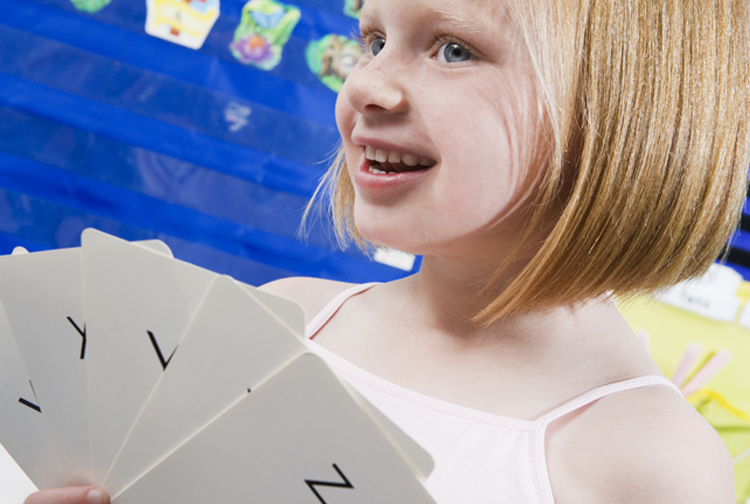When considering the option to homeschool a child, it is natural to wonder if homeschooled children are lonely or happy. Because schooling at home can seem isolating, it’s easy to assume that homeschooling is dull. Life as a homeschooler is entirely different than with traditional schooling.
Homeschoolers are not any more lonely than public school children. Homeschoolers have the same types of interactions with people in the world as public-schooled children do. It is often a misconception that homeschoolers are lonely due to the idea that homeschoolers will miss out on social activities.
Being schooled at home seems like a lonely way to get an education when the fact is quite the opposite. Homeschoolers have a lot of socialization activities to attend, if not more than public school children. Not picking on the public-school sector here, just making an objective observation. Keep reading. In this How Now article, we’ll take a look at what doctors and homeschooled individuals think about the loneliness of schooling at home, and we’ll discover just how lonely (or happy) homeschoolers are.
It Can be a Lonely World
Before we dive too deep into the topic, it is essential to establish precisely what loneliness is and is not. Loneliness is defined by Merriam-Webster as being sad from being alone, being cut off from others. It is easy to assume that because an individual is homeschooled, either the mom or the student is experiencing frequent loneliness.
Dr. John T Cacioppo spent twenty years studying the effects of loneliness in modern times. He discovered that having friends and a social group has extraordinarily little to do with loneliness. Loneliness is capable of sneaking in even while one is part of large or frequent social groups. It is not the lack of socialization that causes loneliness.
Social relationships are not deep enough, according to Dr. Cacioppo. Lonely people do not feel fulfilled with the connection. During his study, he discovered that 1 out of 5 people in the US suffer from loneliness.
Homeschooling parents have the most trouble trying to socialize with their friends. Schedules conflict, and as with most changes, things take time to balance out. Just as the son or daughter is making new friends, so are the parents.
Homeschooling For Parenting
Homeschool students have a very flexible schedule since they do not have to be at a specific location at specific times. Work schedules do not need to conflict with schooling activities and trips. Homeschoolers are with their parents during school, and this often gives the homeschooled child more quality time with his mom or dad then the child would get if attending regular school.
The pre-teenage or 11-14 is when children are most vulnerable to negative influences—this crucial point in the child’s development where their self-esteem and self-awareness are developing. As a homeschooling mom or dad, you have more influence over your child than public school kids or public school teachers do. This means that if you find yourself raising a socially awkward homeschooler, you can do something to alleviate the issue before it becomes a problem.
Homeschooling increases the number of personal activities that you can be involved in as a parent. You will be able to have that influence on their self-esteem and help build their confidence. Higher self-esteem and confidence are correlated with happiness levels.
Public influence on your son’s or daughter’s development has a lower effect on homeschooled children. Homeschoolers often view social activities to practice social culture within the group dynamic.
Socializing can be Better for Homeschoolers
Homeschoolers have access to more social activities because of the scheduling. Homeschoolers are part of popular groups found in many communities. Homeschoolers tend to have excellent group dynamics in both diversity and moral obligations.
The National Home Education Research Institute published a journal issue containing the results of a study. The correlation between homeschoolers and socialization, including self-esteem, was found to be a positive one. Homeschoolers scored the highest self-esteem index in comparison to public school children. Peer popularity is the only area where homeschoolers scored lower.
This issue also mentions a prior study conducted of adults who had been home schooled for at least six years before they reached the age of 17. The findings of that study conclude that the homeschoolers were more mature and involved in more entrepreneurial and professional careers. This study shows that homeschooling does not limit the socialization skills of participants.
Some of the more popular clubs for homeschoolers are:
- 4-H Club
- Church Youth
- Sports
- Scouts
- Kiwanis
- Volunteer youth programs
- Field trips with other homeschoolers
- Homeschooler private community groups
Are Homeschoolers Happier?
Dr. Ray conducted a study in 2003 which showed that homeschoolers were more involved in the community and social events. Most studies done have found remarkably similar results when studying the social aspects of home education. These studies shed interesting light on the misconception that homeschooling causes social awkwardness.
Homeschoolers get to spend more of their time socializing compared to traditional school students. Of course, it is up to the parent to involve their child in activities that build social skills, such as team sports, music, outside group activities, etc. The parents may experience some loneliness as they attend some of their child’s new social events.
When you have more control over the stimuli that a child is receiving, it increases your child’s happiness when they reach adulthood; the homeschool parent has the opportunity to interact and teach their child personally. In a homeschooling family, parents control most of the child’s stimuli, which leads to a closer bond between parents, which in turn leads to happier children.
You get to see (and control, if necessary) the quality of friendships your child develops. This benefit increases self-esteem and self-actualization. When self-esteem is high, the social needs are always met, leaving people with profound and meaningful relationships. Most children do not experience loneliness as adults, but those who do experience loneliness can cope with life and get past it, when they’ve been given that foundation of self-esteem and familial support.
Homeschooling Comes With Perks
Several of us would love not to ask the boss for an afternoon off to go to a game. Homeschoolers have a flexible schedule that tends to be a great perk. Depending on which state that you live in depends on what rules you must follow. The HSLA makes it easy to find the local state laws on their website.
Fast learners and slow learners can learn at their own pace. The child does not get bored as quickly when they can learn at their own pace. Teaching your child the way you always have in your home is a huge benefit to family time.
Some of the more popular perks include:
- Better test scores on standardized tests
- More time to explore themselves as children
- No peer pressures
- No homework
- Flexible scheduling
- More social activities
- More family time
- Special needs are met
- Increased independence and happiness as adults
Is Homeschooling for me?
The personal choice of choosing to homeschool a child is not an easy one to make. Homeschooling is not for everyone; are you the type of person who loves to spend every moment you can with your child? The sacrifices that you make are enormous during the change. The first few months are great; then, when you get settled in, the loneliness starts to creep in as it would with any significant change. It would take six months to two years to build new quality friendships.
Reddit user oreo43 tells his story of being homeschooled and how the lack of social activities lead to his loneliness. If you are an introvert by nature, homeschooling might be very lonely. However, if you are the type of person who is always getting everyone together for social activities and attending everything, homeschooling can be a great opportunity for you to thrive as the organizer of homeschool groups.
Reddit user theWritingWriterIV had quite the opposite experience while being homeschooled up to college. He and other Reddit users would not change the way they were educated.
The child’s experience is on both sides of the spectrum. The parents’ ability to meet the social needs of the child is a major contributing factor in homeschooler loneliness. Finding a youth group or getting your child enrolled in extracurricular activities can be important. If your child is an introvert, perhaps find some outgoing homeschool kids for your son or daughter to bond with. Coordinate activities with another homeschool family.
Conclusion
To answer the question of whether homeschoolers are lonely: it depends on the person. Some students do admittedly experience a fair amount of loneliness. Most, however, are quite happy and have no social consequences due to their education at home.
Many parents experience some loneliness as their previous lifestyle changes. It takes time to make new friends for both the child and the parents; but if the social interaction is there, even shy homeschool kids can develop good social skills. Homeschoolers are not lonely. In fact, their overall emotional health can actually excel past that of children who learn in a traditional school setting. So, as you begin—or continue—your homeschool journey, remember that loneliness isn’t tied to homeschooling itself. Loneliness is tied to the connection a person feels to other people. Making sure your child has strong family ties and even one good friend, will help to keep them from being lonely. And, we don’t have to tell you that when your child is happy, you’ll be happy, too.




